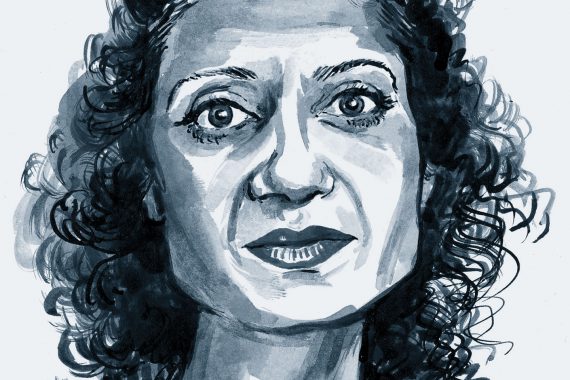Keeping up with the octogenarians

How do you solve a problem like Maria? Or Albert… or Ethel… or any other 85-year-old person who is part of the fastest-growing cohort of the population?
The Government has invested additional millions of pounds in the NHS, but this is barely scratching the surface when you factor in the increasing life expectancy and comorbidity of the population. At least a third of babies born today are predicted to reach the age of 100.
It seems ‘frail’ is the latest politically correct term, supposedly less offensive than ‘old’. Try telling that to an 85-year-old; regardless of their functional status, they will not identify themselves as frail.
GP training is languishing behind this fast-moving NHS train
But I recently attended a frailty conference in an effort to furnish myself with the tools to manage this ticking time bomb. The term Complex Geriatric Assessment (CGA) was mentioned at least 10 times – the panacea to manage the elderly population. The elderly arrive in the emergency department and are CGAd. They attend an acute admissions unit and are CGAd. They are seen in a clinic and are CGAd. I was desperate to learn these magical skills so I, too, could CGA all my elderly patients. Then I learned it was nothing more than a psychological, social, functional and medical assessment.
I felt shortchanged because it was all so bloody obvious. It’s not as if for the past 15 years of home visits, I was ignoring the loose rugs, the cognitive impairment and the social isolation.
This is the bread and butter of general practice and, for once, GPs ARE best placed to manage these patients. No other doctor is able to manage risk and uncertainty – with a healthy dose of pragmatism – as well as an experienced GP, which is why we are ideally positioned to respond to the needs of the frail elderly.
And in our brave new world of vanguards and multispecialty community providers, it is highly likely that although large chunks of the traditional GP role will be siphoned off to nurses, pharmacists, physiotherapists and paramedics, GPs will still be left dealing with the complex ethical and medical decisions on comorbidity and end-of-life care.
But there are three problems with this. First, we don’t have time for a two-hour CGA and if we are not given enough space to do this the elderly will continue to get stuck in the cracks between primary, secondary and social care. Second, is the new generation of GPs ready for this? Somehow I don’t think so. GP training is languishing behind this fast-moving NHS train and continues to propel a conveyer belt of Dr Finlay-style GPs who are jacks of all trades and see everything from verrucas to psychosis. It is not preparing trainees for the new models of care where GPs will become community geriatricians. Lastly, the reductionist approach to our role will eventually lead to subspecialties in general practice, and we will say goodbye to the last GP generalist. RIP the family doctor.
Dr Shaba Nabi is a GP trainer in Bristol
Pulse October survey
Take our July 2025 survey to potentially win £1.000 worth of tokens











